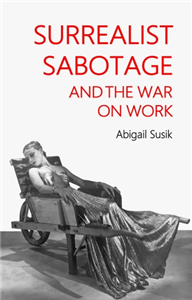This is a head work page, grouping together all editions of this title listed on the site. Browse through ‘All Editions’, Rights information, and Permissions information, to find a rights contact, or a particular edition.
Description
In Surrealist sabotage and the war on work, art historian Abigail Susik uncovers the expansive parameters of the international surrealist movement's ongoing engagement with an aesthetics of sabotage between the 1920s and the 1970s, demonstrating how surrealists unceasingly sought to transform the work of art into a form of unmanageable anti-work. In four case studies devoted to surrealism's transatlantic war on work, Susik analyses how artworks and texts by Man Ray, André Breton, Simone Breton, André Thirion, Óscar Domínguez, Konrad Klapheck, and the Chicago surrealists, among others, were pivotally impacted by the intransigent surrealist concepts of principled work refusal, permanent strike, and autonomous pleasure. Underscoring surrealism's profound relevance for readers engaged in ongoing debates about gendered labour and the wage gap, endemic over-work and exploitation, and the vicissitudes of knowledge work and the gig economy, Surrealist sabotage and the war on work reveals that surrealism's creative work refusal retains immense relevance in our wired world.
Author Biography
Abigail Susik is Associate Professor of Art History at Willamette University and co-editor of Surrealism and film after 1945 (2021)



